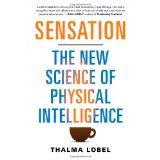In case I forget
 Tuesday, June 16, 2015 at 7:07PM
Tuesday, June 16, 2015 at 7:07PM I spent much of last week in the company of a new friend who is 83 years old and suffers from dementia. We had lively conversations about politics or countries we’d been to or food or stories of our lives, and then he’d tell me some of the same stories again and again. He knew his memory wasn’t “like it used to be” but didn’t realize the extent of its loss. And that may be a good thing, because he would have been upset to know how much of his witty mind was no longer there. At the same time, I could see how the memory loss elevated his anxiety. He was surprised again and again by the same confusing documents on his desk, asking for explanations about them. He found the daily routines of blood sugar and blood pressure checks and medications baffling. He was anxious when his caregiver was not around, because he didn’t remember if and when the caregiver would be back. He was upset about the car that blocked his driveway, because he forgot that he didn’t drive any more, and that therefore the blocked driveway was not really a bother.
He was delighted when I responded to one of his funny anecdotes with surprise and amusement, but seemed apologetic when I said that yes, I know that, he’d told me. Going for a walk he’d enjoy the flowers, the sunshine and the neighbors he ran into. Returning home forgot that he’d been out, but the contentment remained.
It seemed to me that the feelings of delight, surprise, anger or anxiety lingered at times longer than the memory of what triggered them in the first place.
Not all of us will get to age gracefully. We may as well cherish our minds while we can still enjoy them, and do what we can to keep them intact. We can educate ourselves about exercise and diet and supplementation, and develop habits, if we haven’t yet, that will support our health. But even when damage is done, intervention can make a difference. I’m hoping that if I were to be as confused as my friend, that someone would take me daily through activities that I couldn’t remember to do, to support my balance, to enhance my dexterity, to engage my two hemispheres in coordinated movement, to reduce anxiety, to enhance memory, to experience joy.

